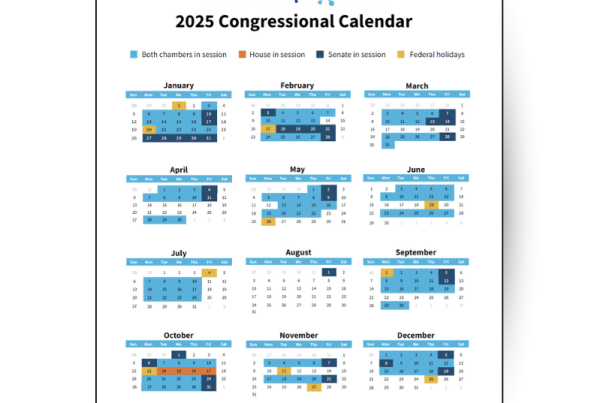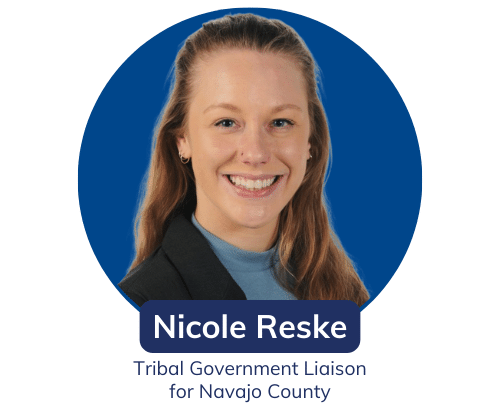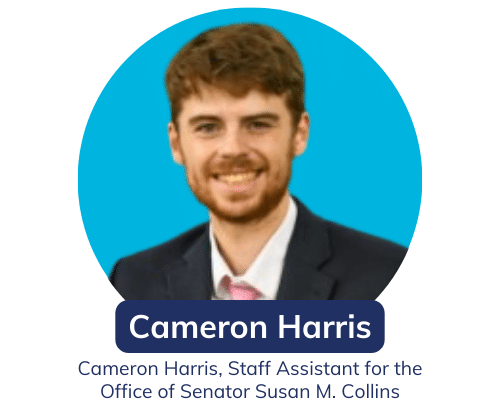Callum Cintron works with Tribal Nations in navigating complex environmental, cultural, and legal challenges. Callum’s journey, which began with a deep interest in anthropology, has evolved into a passion for understanding and addressing contemporary Tribal issues, particularly concerning the environment and climate change. His work focuses on building partnerships between Tribal, federal, state, and local agencies while advocating for more effective policies that respect and integrate Indigenous knowledge and perspectives.
Takeaways:
- Tribal Government Relations, particularly in environmental sectors, involves navigating multiple interconnected issues—cultural, legal, and environmental—that require a deep understanding and respect for Indigenous perspectives.
- Mistakes will happen, but what matters most is how you learn from them. Self-education, active listening, and genuine engagement with Tribal communities are essential for success.
- Building partnerships and creating sustainable solutions takes time, patience, and a willingness to listen and collaborate with Tribal Nations.

Can you tell me about your career path that has led you to where you are now?
My journey started with a completely different focus. I was originally a forensic anthropology major, but a class on contemporary Native issues changed everything for me. It was the first time I was really exposed to the legal, cultural, and political challenges that Tribal Nations face, and it immediately drew me in. From there, I shifted my focus to cultural anthropology and Native American law, which set me on my current path.
I began volunteering and interning with Indigenous organizations, eventually landing a Tribal internship that turned into my first professional job. During this time, I am also doing a master’s in legal studies, which has been invaluable for the work I do today. I’ve always been connected to nature, and as I learned more about the interconnectedness of Tribal Nations with their land, it became clear that this was where I wanted to focus my efforts.
How did you become passionate about the intersection of tech, government, and tribal communities, and how do you stay informed and engaged in those areas?
It really came down to my connection with nature and the realization of how deeply intertwined environmental issues are with Indigenous communities. For Tribal Nations, the land is not just a resource; it’s a living entity that is tied to their history, culture, politics, and economics. That complexity fascinated me and made me want to learn more about how I could support Tribes in navigating these interconnected challenges.
To stay informed, I’m always reading up on current policies, attending conferences, and engaging with Tribal leaders and environmental experts. Networking is crucial in this field because it helps you stay on top of changes and build partnerships that can lead to meaningful collaboration. It’s important to be proactive and continuously seek out new knowledge and perspectives, especially from those who are directly impacted by these issues.
What do you believe sets Tribal Government Relations apart as a unique work environment, and how do you navigate its challenges in your everyday work?
The interconnectedness of issues in Tribal Government Relations, particularly in the environmental sector, adds a level of complexity that is unlike anything else. Tribal issues are multifaceted, often involving cultural, legal, political, and environmental components that all overlap. One of the biggest challenges is helping colleagues and federal partners understand just how deep these connections go. Even the basics can be complicated because there’s so much historical context and nuance that needs to be conveyed.
To navigate these challenges, I focus on clear and open communication, making sure that I’m explaining these concepts without overwhelming others. It’s important to strike a balance between educating people about the complexity while also advocating for better policies and partnerships that can help Tribal Nations. There’s a lot of bad federal Indian law out there that has had long-lasting impacts on Tribes, and part of my work is focused on using my knowledge to improve things, bit by bit.
Describe a challenging or rewarding project that significantly influenced your growth as a professional. How did you handle the challenge, and what did you learn from the experience?
One of the biggest projects I’m currently working on is incorporating Indigenous Knowledge and sciences into our new online forestry bachelor’s and master’s courses. The challenge here is ensuring that the content is not only accurate but also sensitive to the history, culture, and needs of Tribal Nations. We can’t just include content for the sake of it—it has to be reviewed by Indigenous people and reflect their understanding and experiences.
One of the hardest parts is finding Tribal authors who have published academically. Historical barriers have made it difficult for Indigenous voices to break into the academic world, and it’s going to take time to do this project correctly. But I’m proud of the work we’re doing because it’s an opportunity to elevate Indigenous perspectives and create educational programs that truly reflect the complexity of Tribal issues.
What I’ve learned from this experience is that patience and collaboration are key. It’s important to take the time to do things right, even if it takes longer than expected. And, of course, listening to the feedback from Tribal communities is crucial to ensuring the success of any project.
What advice would you give to someone navigating how to bridge the gap between traditional practices and modern governance structures?
The biggest thing to understand is that you’re going to make mistakes, and that’s okay. What’s important is how you learn from those mistakes and move forward. Be humble and accept that you don’t have all the answers. Self-education is crucial. People are busy, but you need to put in the work to research, reflect, and understand what went wrong and how you can improve next time.
If you’re not Native, it’s important to recognize that you’ll never have the full picture. Do your research, but don’t act like you know everything. Instead, focus on building relationships and showing up for the community, even when it’s not immediately beneficial to you. Volunteering, interning, and being an active participant in the community shows that you genuinely want to support, not just learn from, Tribal Nations.
Word Association, what is the first word that comes to mind for each of there?
- Policy – Difficult
- Networking – Integral
- Communications – Genuine
- Leadership Connect – Useful






